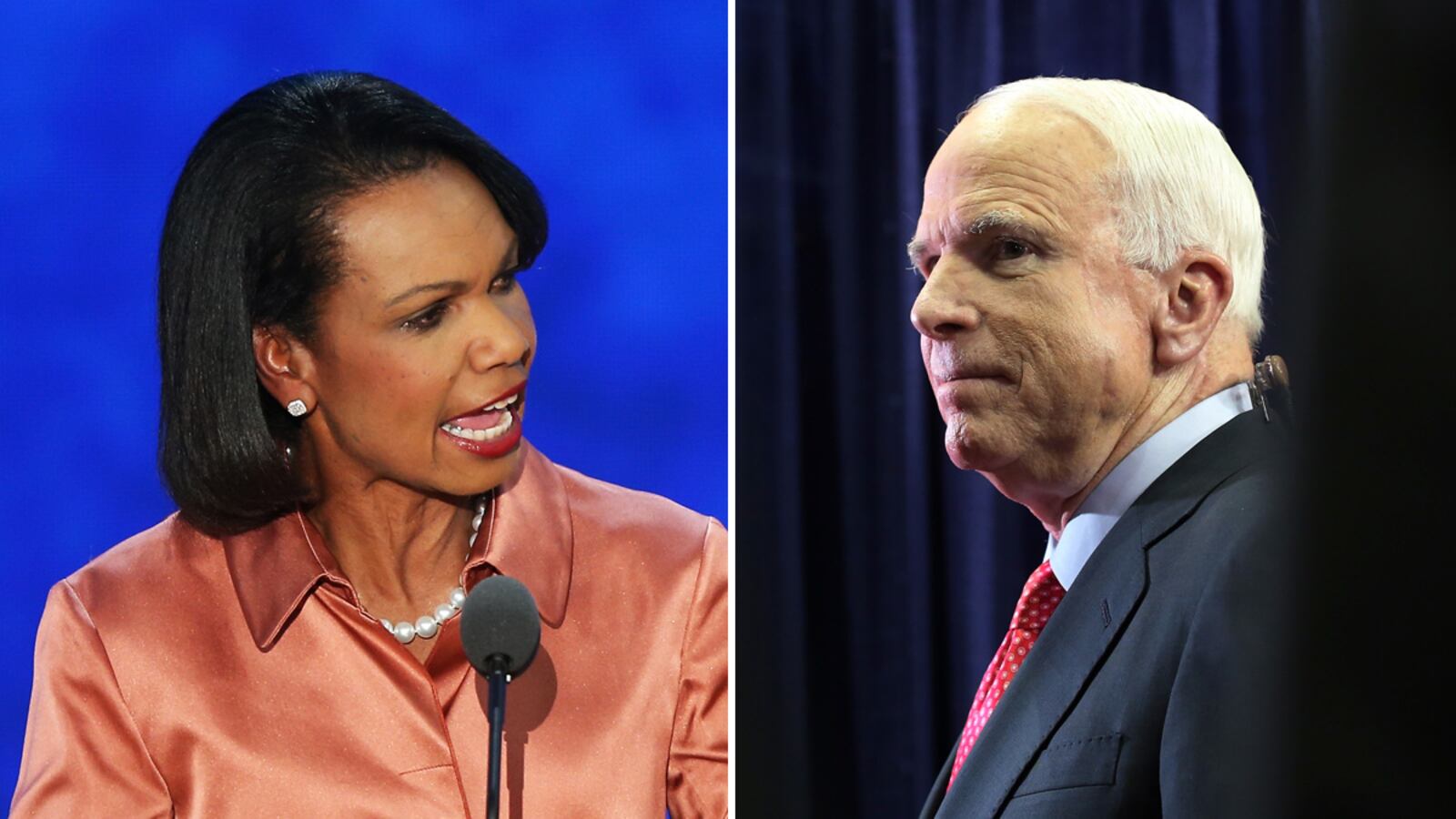Republicans like to talk about individual responsibility. In case you haven’t heard, it’s what makes America great.

So let’s apply the concept to foreign policy night at the Republican convention. The evening featured Condoleezza Rice, who served as national security adviser and then secretary of state in the administration of George W. Bush, an administration that launched two wars it made no attempt to pay for, and which have become among the greatest disasters in the history of America’s relations with the outside world. One of those wars was in a country called Iraq. In her speech, Rice mentioned Iraq once, as a “fragile democracy” beset by “internal strife and hostile neighbors.” That’s a rather passive way to describe a country that the United States invaded and occupied because government officials like Condoleezza Rice swore it had weapons it turned out not to have. The other country that the U.S. invaded and occupied on Rice’s watch is called Afghanistan. Two thousand Americans have now died there. She didn’t mention it at all.
The night’s other major foreign policy speaker was John McCain, probably the highest-profile advocate for the Iraq and Afghan wars in Congress. As recently as 2008, McCain premised much of his presidential campaign on his support for the Iraq troop surge. In his speech on Wednesday, McCain didn’t mention Iraq once. He devoted a sentence to Afghanistan, saying that by “committing to withdraw” U.S. troops there, President Obama has put “our mission at much greater risk.” But McCain didn’t bother to spend a second sentence explaining what that mission is or how keeping troops there longer can help achieve it. Like Rice, McCain also never mentioned the “war on terror,” an effort they both once routinely compared to World War II and the Cold War.
So what did Rice and McCain say? That the world remains a dangerous place; that America must remain strong; that we must stand for freedom, as we always have in the past; that we must lead because only we can; that we are an exceptional nation; that others will believe in us if only we believe in ourselves.
Once upon a time, those phrases had consequences. Americans spent billions of dollars in wars that killed or maimed tens of thousands of Americans and hundreds of thousands of Iraqis and Afghans because people like Rice and McCain told us that Saddam Hussein was making the world a dangerous place and that America needed to stand up for freedom. If only we believed in ourselves, they said back then, Iraqis and Afghans would embrace our conquests, and eventually the entire world would see the justness of our cause.
I almost miss those days. At least then the phrases mattered. Today they’re pure wind. They’re pure wind because the calamitous wars that Rice and McCain championed have helped to end the American dominance they demand. The only real purpose such platitudes still serve is to inhibit an open conversation about the overseas retrenchment that a deeply indebted country has little choice but to undertake. (And which America has undertaken before, sometimes disastrously, as in the 1920s and 1930s, and sometimes relatively harmlessly, as in the 1970s.) On foreign policy night at the Republican convention, news broke that the president of America’s ex-client state, Egypt, had been offered almost $5 billion in aid by China.
Once upon a time, the world quaked when people like Rice and McCain thumped their chests. Now it barely notices at all.






